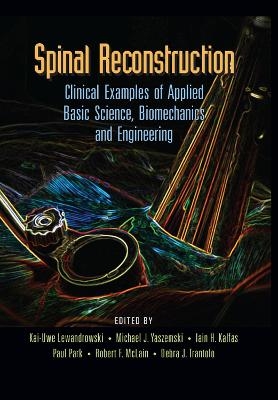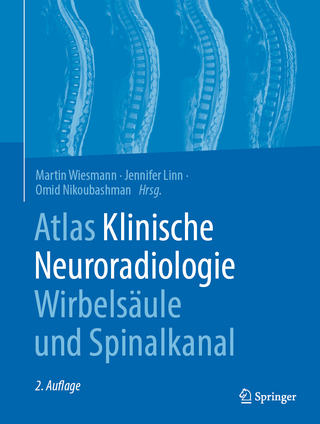
Spinal Reconstruction
CRC Press (Verlag)
978-0-367-38949-9 (ISBN)
With more than 350 figures and photographs, this book:
Details current strategies in minimally invasive spine surgery as currently applied to the lumbar spine
Covers the myriad of patient factors, orthobiologic grafting alternatives, and technique-driven mechanical options encountered in spinal care and reconstruction
Identifies new surgical techniques for spinal fusion, vertebral compression fractures, and arthroplasty
Discusses the basic mechanisms and clinical application of currently available operative treatments
Supplies the most up-to-date information on the evaluation, diagnosis, and operative treatment of spinal pain, deformity, and disease
Kai-Uwe Lewandrowski, Michael J. Yaszemski, Iain H. Kalfas, Paul Park, Robert F. McLain, Debra J. Trantolo
The Role of Minimally Invasive Surgery in Instrumented Lumbar Fusions. Minimally Invasive Transforaminal Lumbar Interbody Fusion (MITLIF). Non-Endoscopic Percutaneous Disc Decompression as Treatment of Discogenic Radiculopathy. Endoscopic Decompression for Lumbar Spondylolysis: Clinical and Biomechanical Observation. Anular Repair Following Intervertebral Disc Herniation. The Lumbar Alligator Spinal System-A Simple and Less Invasive Device for Posterior Lumbar Surgery. Review of the Effect of Cox-Ii Agents on the Healing of a Lumbar Spine Arthrodesis. Functional Spinal Stability: The Role of the Back Muscles. Influence of Injury or Fusion of a Single Motion Segment on Other Motion Segments in the Spine. Degenerative Disease Adjacent to Spinal Fusion. Adjacent Segment Degeneration. Quantifying the Surgical Risk Factors for Adjacent Level Degeneration in the Lumbar Spine: A Metaanalysis of the Published Literature. Transition Zone Failure in Patients Undergoing Instrumented Lumbar Fusion from L1 Or L2 to the Sacrum. Adjacent Intervertebral Disc Lesions Following Anterior Cervical Decompression and Fusion: A Minimum Ten-Year Follow-Up. The Role of Biologics in Lumbar Interbody Fusions. Current Perspectives on Biologic Strategies for the Therapy of Intervertebral Disc Regeneration. Intervertebral Disc Growth Factors. Biological Manipulation for Degenerative Disc Disease Utilizing Intradiscal Osteogenic Protein-I (OP-1/BMP-7) Injection. Clinical Strategies for Delivery of Osteoinductive Growth Factors. New Adjunct in Spine Interbody Fusion: Bioabsorbable Cage Design with Cell-Based Gene Therapy. Scientific Basis for Interventional Therapies for Discogenic Pain. Molecular Diagnosis of Spinal Infection. Motion Preservation Instead of Spinal Fusion. Intervertebral Disc Arthroplasty as an Alternative to Spinal Fusion: Rationale, Biomechanical and Design Considerations. Biomechanical Aspects of the Spine Motion Preservation Systems. Rationale and Design Criteria for Disc Repl
| Erscheinungsdatum | 01.10.2019 |
|---|---|
| Verlagsort | London |
| Sprache | englisch |
| Maße | 178 x 254 mm |
| Gewicht | 916 g |
| Themenwelt | Medizinische Fachgebiete ► Chirurgie ► Neurochirurgie |
| Studium ► 1. Studienabschnitt (Vorklinik) ► Physiologie | |
| ISBN-10 | 0-367-38949-5 / 0367389495 |
| ISBN-13 | 978-0-367-38949-9 / 9780367389499 |
| Zustand | Neuware |
| Informationen gemäß Produktsicherheitsverordnung (GPSR) | |
| Haben Sie eine Frage zum Produkt? |
aus dem Bereich


